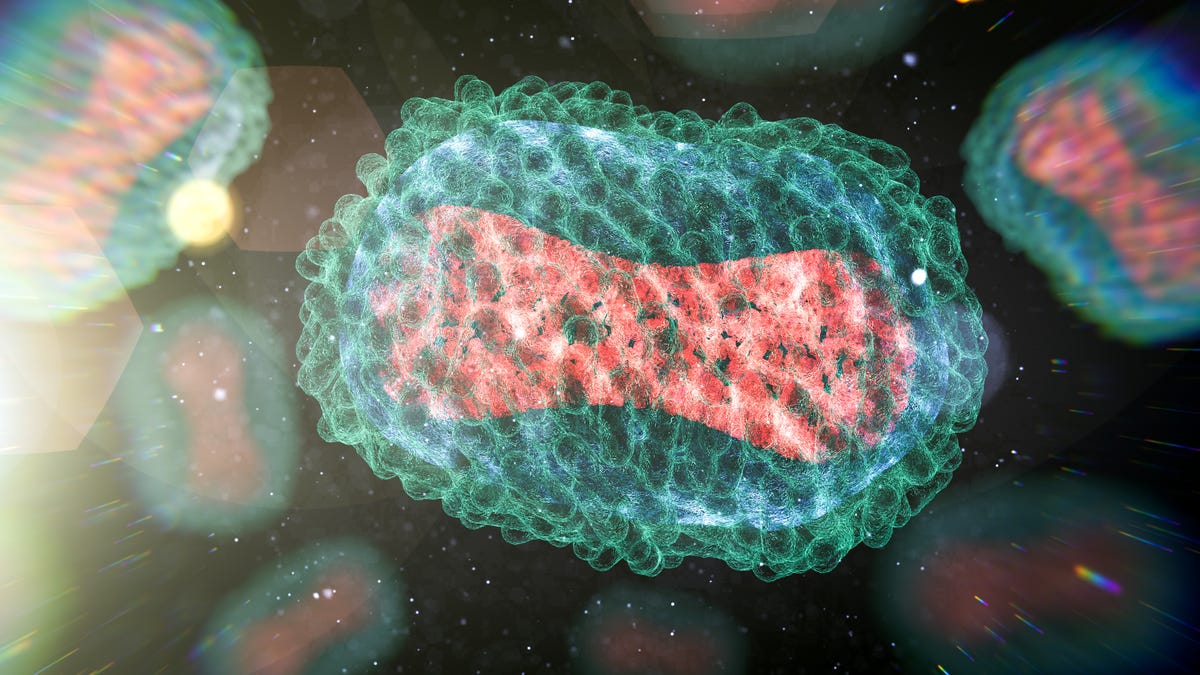'Mpox' Is the New Name for Monkeypox, WHO Says
Citing racism and stigmatizing language around the original name, the WHO says the original name will be phased out.

Illustration of the mpox virus
The World Health Organization has renamed monkeypox as "mpox," the global health group announced Monday. But monkeypox and mpox will be used simultaneously for one year while "monkeypox" is phased out.
Global health officials have been working to find a new name for monkeypox for months. In its announcement of the new name for the disease and why it was changed, the WHO cited "racist and stigmatizing language online, in other settings and in some communities" with a number of countries and individuals raising concerns about the name.
An outbreak of monkeypox expanded across the globe earlier this year, affecting many more countries (more than 100) and more people than what's been typical or where it's been endemic. Monkeypox was originally named in 1958, before the WHO's best practices for naming a disease were in effect. Two strains or "clades" of the disease were renamed over the summer, breaking their association with specific regions or countries.
The process of renaming was accelerated compared to the renaming of other diseases, the WHO said, and "various advisory bodies" were heard during the renaming process, including government representatives from 45 countries. Mpox will be part of the International Classification of Diseases -- the world's official medical classification list -- and "monkeypox" will remain a searchable term for historic information purposes, the WHO said.
Anyone with very close contact to a person with monkeypox can get the disease. However, it recently has been spread primarily through sexual contact and has mostly affected gay and bisexual men. Vaccines for people who were exposed to monkeypox, or those who are at higher risk of getting the disease, are available. Compared to the peak of the US outbreak in July and August, reported cases in the US have continued to decline in recent weeks. At its peak in early August, 456 new cases were reported daily in the US, per the seven-day daily average. As of mid-November, that figure had dropped to 13 new cases daily.

